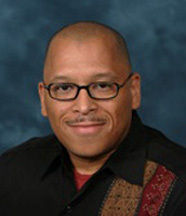
Sen. Barack Obama’s high polling numbers after his victory in the Iowa caucuses were equated to a “tsunami” that would drown the electoral prospects of the other Democratic Party contenders. So what happened in New Hampshire?
“This was more than media exuberance, as the polling numbers suggested that Obama would beat Hillary Clinton by at least 9 percentage points in New Hampshire,” says University of Notre Dame political scientist Darren Davis, a nationally recognized expert in public opinion, elections and voting behavior.
“Some confidence seemed warranted since these numbers were beyond the margin of error of most polls, which is 3 to 4 percent.”
The predictability of these polling numbers was put to the test in NewHampshire and the reality proved disastrous for Obama, whose 10-point lead the day before turned into a 3-point deficit in the voting booth.
“While it is tempting to connect changes in the polls to statements and behavior of the candidates, it should be noted that abrupt overnight swings in polling results do not occur frequently,” Davis said. “Polling organizations will review their sampling methodology and screening procedures of likely voters to figure out why the polls were so wrong.”
“Another plausible explanation is that the Obama `tsunami’ was partiallyinflated by survey respondents who were not being completely truthful in their willingness to vote for Obama. It is not that survey respondents mislead pollsters for the sake of throwing off polling results, but rather social pressures continue to exist in American society regarding the expression of racial equality.”
According to Davis, voters reacting to Obama’s “de-racialized” campaignstrategy – in the sense that he has avoided racially divisive issues and positions that threaten the American racial hierarchy – whites, who are sensitive to racial norms and conscious of their own racial self-concept, voice public support for Obama.
“As a de-racialized black candidate who has done just about everything expected of a presidential candidate, to suggest that Obama does not have a chance of being elected president and to not voice some support for what he represents is a rejection of many of the norms upon which Americans hold dear, such as equality, hard work, perseverance, individualism.”
“Obama’s candidacy is likely to invite whites to voice public support because of the social pressure, but in the privacy of the voting booth to vote for someone else or not vote at all,” Davis says.
Media advisory: Professor Davis’ comments may be used in whole or in part. He can be reached for further comment at 517-282-1192 (cell), 574-631-5654 (office) or Darren.Davis@nd.edu
Originally published by at newsinfo.nd.edu on January 09, 2008.